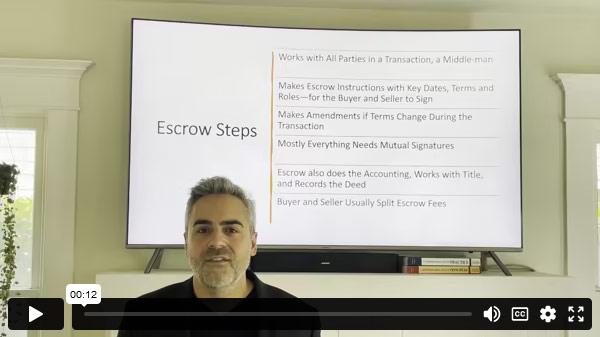It always seems to happen. Just as the manufacturer’s warranty on an appliance expires, the darned thing breaks down. That is why some people opt for purchasing extended warranties. But even those expire eventually. So, how does a home seller give assurances to a home buyer that the fridge, the oven, the air conditioning system, etc. won’t quit on them? The short answer is, he can’t. And that really doesn’t matter so much if it is a sellers’ market – where demand for homes exceeds the number of homes being sold – and sellers are having no problem finding buyers. (That happens to be where we are right now.)
But if it’s a buyers’ market – when the supply of available homes for sale exceeds the demand — and sellers have to compete for the limited number of buyers out there, any incentive to make your real estate client’s home the better option for a prospective buyer may be helpful. A seller who provides a home warranty to the buyer will likely be at a competitive advantage.
Assurances that the systems and appliances in the home will be taken care of for a period of time may encourage a buyer to choose your client’s home over another. If a buyer is considering two similar properties, a home warranty can often tip the scale in favor of the home seller who is providing it. Buyers often fear buying an older home because things are more apt to go wrong: the roof might start leaking, the furnace might go out, the plumbing might need repairs. But with a home warranty, the buyers may feel more comfortable purchasing a home that’s been around for several decades or longer.
Statistics show that homes for sale that offer a home warranty sell more quickly and for more money!
What Exactly is a Home Warranty?
A home warranty is like an insurance policy for major appliances and systems in a home. It is a service contract that helps cover the cost of service, repair, or sometimes even replacement when an appliance or system stops working. Unlike an insurance policy, there does not have to be a specific event that caused the failure, like a fire or a storm. But, similar to an insurance policy, home warranties may have a deductible that the homeowner is responsible for, which is usually a set amount that you pay for a service call.
Another difference between a home warranty and a homeowners’ insurance policy is that while a warranty provides for the repair or replacement of the broken appliance, a homeowners’ insurance policy provides reimbursement or payment for any covered loss or damage to the home caused by the appliance that is in disrepair (e.g., a leaking refrigerator may be repaired under the home warranty, but the damage the leak causes to the kitchen flooring will not. That damage may be covered under the homeowners’ policy.)
Home warranties differ from one another, but the standard ones typically cover central heating and air conditioning, kitchen appliances, washer and dryer, plumbing and electrical systems, and roof leaks. Instead of calling a local repairman, if a major system or appliance fails to work, the homeowner would instead contact the warranty provider. The warranty company usually then contacts a local third-party service provider with whom they have a contract. And that service company would contact the homeowner to schedule an appointment for inspection and repair.
All in all, the purchase of a buyer’s home warranty is something every real estate agent should discuss with their client if that agent is listing the client’s home.
How a Real Estate Agent May Use a Home Warranty as a Marketing Tool
It is essential for a real estate agent to understand the home warranty and how it works. And it is crucial that he or she knows how to use it as a marketing tool. Often an agent or his or her broker will provide, i.e., include with the listing service, a home warranty for the prospective buyer. And if potential clients know that up front, that agent is more likely to get the listing in the first place than one who is not including a warranty as part of the service he or she is providing. An agent who does not suggest, explain, and provide a home warranty to her client is truly doing that client a disservice. Incorporating a home warranty into a listing presentation and into a real estate agent’s marketing materials for prospective clients is not only a best practice of top-producing agents, but it also offers assurance for the buyer’s future peace of mind.
Warranties help agents to leave behind satisfied sellers and buyers, which in turn may lead to more referrals and increased future business. It’s a win for everyone involved.











